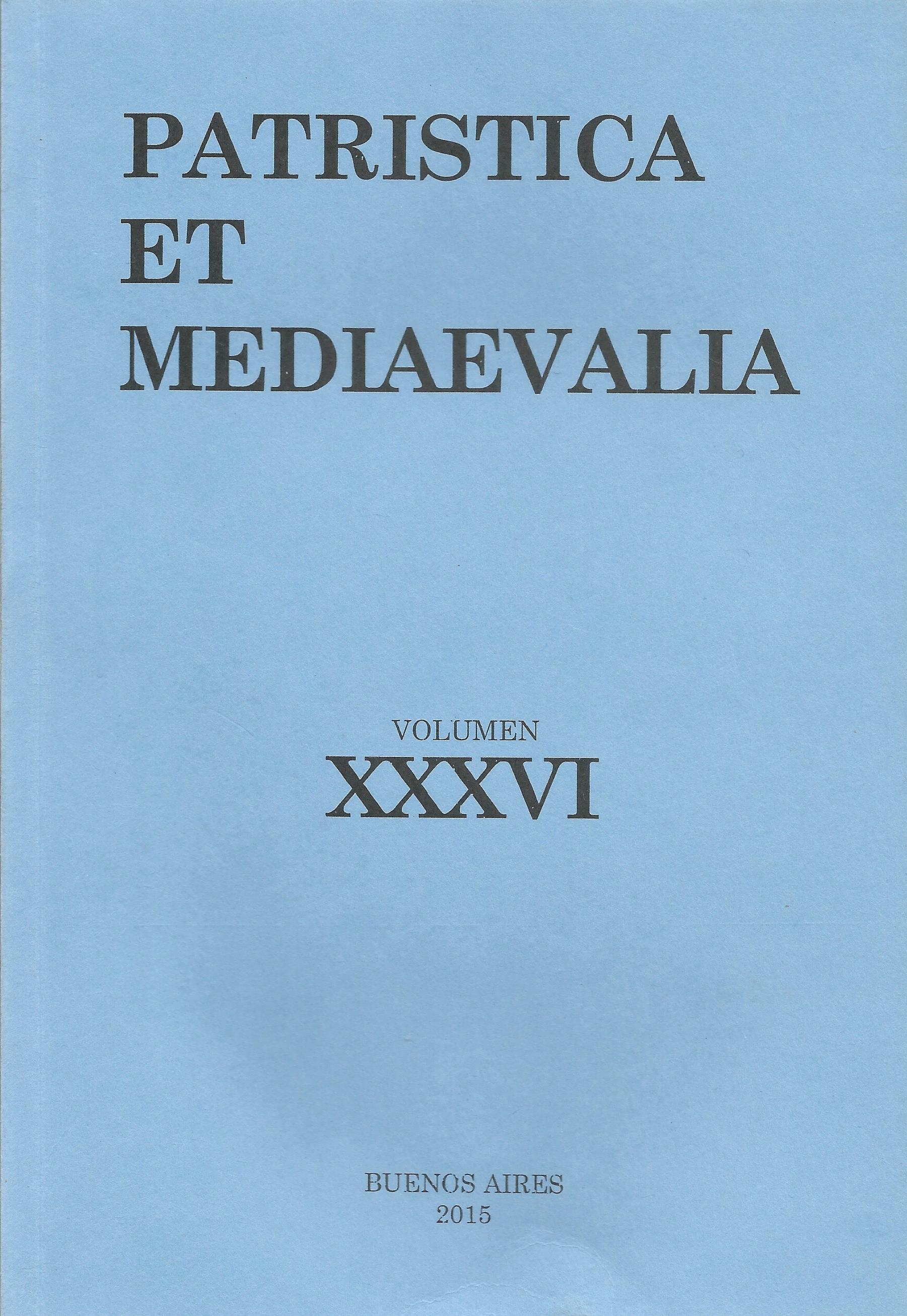Nihil per privationem and the Conception of Eriugena of the Formula creatio ex nihilo
Abstract
In his Periphyseon, John Scottus Eriugena presents the notion of nihil per excellentiam. The application he makes of it in order to elaborate his interpretation of the formula ex nihilo (or, as he prefers: de nihilo) from Maccabees 7,28, in book III of the Periphyseon, is famous. The Carolingian thinker defends there his idea of nihil understood as the excellence of the divine “super-essentiality”. However, it is also possible to find in Eriugena an analysis of the notion of non-being understood as privation, already present in his De praedestinatione liber. This paper intends to show the intimate bond between this analysis and his interpretation of Maccabees.Downloads
References
Arruzza, C. (2007). La matière immatérielle chez Grégoire de Nysse. Freiburger Zeitschirft für Philosophie und Théologie, 54, 215-223.
Brennan, M. (1986). Materials for the biography Johannes Scottus Eriugena. Studi Medievali 21, 413-460.
Colish, M. L. (1984). Carolingian Debates over Nihil and Tenebrae. Speculum 59(4), 757-796.
Erismann, Ch. (2004). Erigène et la subsistance du corps. Studia Philosophie 62, 91-104.
Jeauneau, E. (1996). The Autographa of Eriugena, Turnhout: Brepols.
Mainoldi, E.S.N. (2003). Introduzione’. En Mainoldi. Giovanni Scoto Eriugena: De praedestinatione liber. Firenze: Edizioni del Galluzzo.
Mainoldi, E. S. N. (2004). Le fondi del De praedestinatione liber di Giovanni Scoto Eriugena. Studi Medievali 45, 651-697.
Marenbon, J. (1981). From the Circle of Alcuin to the School of Auxerre: Logic, Theology, and Philosophy in the Early Middle Ages. Cambridge/New York: Cambridge University Press.
Marenbon, J. (1990). John Scottus and Carolingian Theology: from the De praedestinatione, its Background and its Critics, to the Periphyseon. En Gibson, M. T. & Nelson, J. L. (eds.). Charles the Bald, Aldershot: Varioruro, 303-325.
Moran, D. (1989). The Philosophy of John Scottus Eriugena. Cambridge/New York: Cambridge University Press.
Naldini, M. (1979). Gregario Nisseno e Giovanni Scoto Eriugena. Note sull’idea di creazione e sull’antropologia. Studi Medievali 20, 501-533.
Piemonte, G. (1968). Notas sobre la creatio de nihilo en Juan Escoto Eriúgena, Sapientia 23(87), 37-58.
Piemonte, G. (1986). “L’expression quae sunt et quae non sunt: Jean Scot et Marius Victorinus. En Allard, G. H (ed). Jean Scot Écrivain. Paris: Vrin, 81-113.
Piemonte, G. (2013). Eriúgena y la controversia sobre la predestinación. Scintilla 10, 11-37.
Schriropf, G. (1982). Der Beitrag des Johannes Scottus Eriugena zum Pradestinationsstreit. En: Löwe, H. (ed.), Die Iren und Europa im früheren Mittelalter. Stuttgart: KlettCotta, 819-865.
1. The authors who publish in this magazine accept the following conditions:
-
They retain the copyright and grant to the magazine the right of the first publication, with the work registered under the Attribution-ShareAlike 4.0 International License that allows third parties to use what is published as long as they mention the authorship of the work and the first publication in this magazine.
-
They can make other independent and additional contractual agreements for the non-exclusive distribution of the version of the article published in this magazine (eg. include it in an institutional repository or publish it in a book) provided that they clearly indicate that the work was first published in this journal.
-
They are allowed and recommended to publish their work on the Internet (for example on institutional or personal pages).
2. AutoArchive Conditions. Authors are allowed and encouraged to distribute post-print electronic versions of their manuscripts because it promotes their circulation, a possible increase of quotation and a major reach among the Academic community. Color RoMEO: blue.













